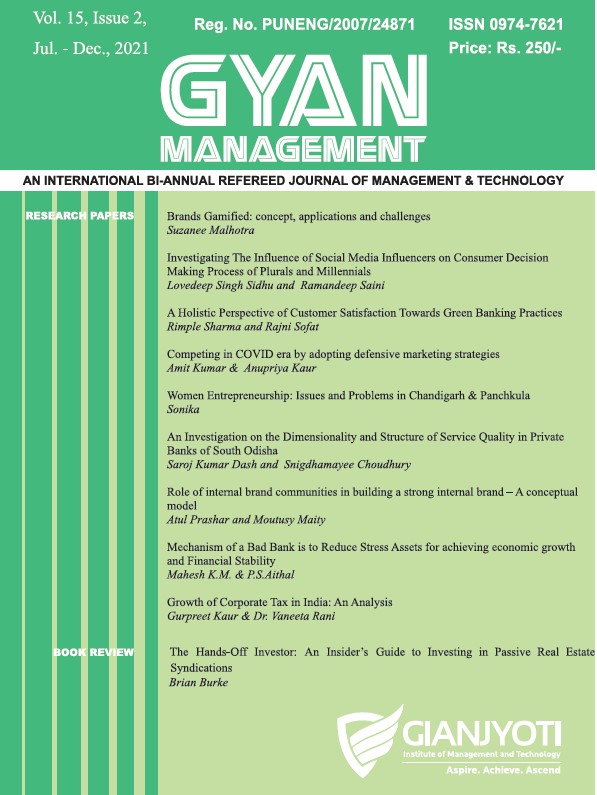“Impact of Educational Background on Academic Scores of Management Students: Case Study”
Keywords:
Academic Performance, Academic Scores, Graduation Stream, Management Studies, MBAAbstract
Identifying the factors that influence academic performance of students is an essential part of educational research. Previous studies have documented the importance of personality traits, class attendance, parenting etc. This paper is aimed at evaluating the Influence of Stream of Graduation on Academic Score of Management Students. For this purpose, data was collected from a sample of 60 MBA students enrolled with a management institute of Navi Mumbai. Descriptive Statistics, One-way ANOVA and Tukey Honestly Significant Difference (HSD) Test was used for analysis. The first-year’s Academic Scores were taken as a measurement of Academic Performance of the MBA students. The results of the study revealed that there is no significant difference in Academic Scores of the MBA students from different educational background. The Levene’s Test revealed that the variance of all groups i.e B. Com, BMS and B.Sc. were equal. Tukey HSD test further confirmed that the academic scores of students having different background doesn’t significantly differ.
Downloads
References
Ahmadi, M., Raiszadeh, F., Helms, M. (1997), “An Examination of the Admission Criteria for the MBA Programs: A Case Study”, Education, pp 540-546
Ali, N., Jusof, K., Ali, S., Mokhtar, N., & Salamat, A.S.A. (2009), “The Factors Influencing Students’ Performance at University TEKNOLOGI MARA KEDAH, Malaysia”, Management Science and Engineering, 3(4), pp 81-90
Bance, L.O. and B. Acopio, J.R. 2016, “Exploring Emotional Intelligence and Academic Performance of Filipino University Academic Achievers”, International Journal of Psychological Studies, Vol. 8, No. 3; 2016, pp 1-9
Baruch, Y., Leeming, A. (2001), “The Added Value of MBA Studies: Graduates’ Perceptions”, Personnel Review, 30, 589-602. doi:10.1108/EUM0000000005941.
Battle, J., & Lewis, M. (2002), “The Increasing Significance of Class: The Relative Effects of Race and Socioeconomic Status on Academic Achievement. Journal of Poverty, Vol. 6 (2), pp 21-35
Bisschoff, C. (2005), “A Preliminary Model to Identify Low-Risk MBA Applicants”, South African Journal of Economic & Management Sciences, 8, pp 300-309
Crosnoe, R., Johnson, M. K., & Elder, G. H. (2004), “School Size and the Interpersonal Side of Education: An
Examination of Race/Ethnicity and Organizational Context”, Social Science Quarterly, 85(5), pp 1259-1274
Kelan, E. K., Jones, R. D. (2010), “Gender and the MBA”, Academy of Management Learning & Education, 9, 26-43. doi:10.5465/AMLE.2010. 48661189.
Larry J. stephens, Laura A. Schaben (2002), “The Effect of Interscholastic Sports Participation on Academic Achievement of Middle Level School Students”
Tsinidou, M., Gerogiannis, V., & Fitsilis, P. (2010), “Evaluation Of The Factors That Determine Quality In higher education: an empirical study”, Quality Assurance in Education, 18(3), pp 227-244
Downloads
Published
Issue
Section
License
Copyright (c) 2022 Gyan Management Journal

This work is licensed under a Creative Commons Attribution 4.0 International License.



